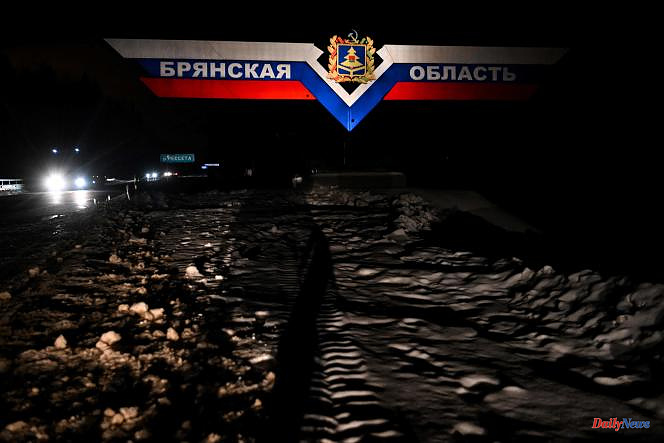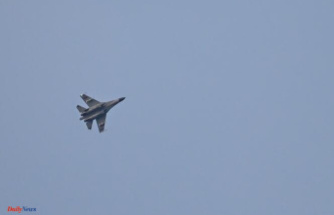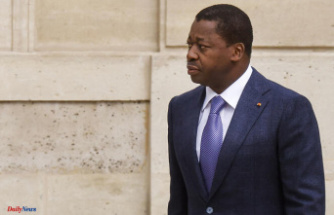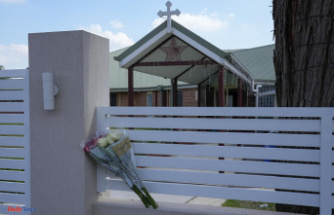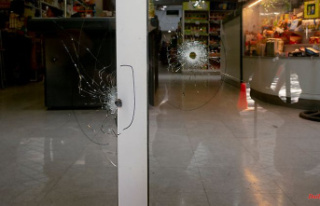Russian President Vladimir Putin on Thursday (March 2) denounced a "terrorist" attack after Moscow reported an incursion by Ukrainian "saboteurs" into the Bryansk region in southwestern Russia bordering Ukraine. The Russian authorities notably accuse "saboteurs" of having opened fire on a car in the village of Lioubetchane, accusations denied by kyiv.
Despite the gray areas surrounding it, this alleged Ukrainian infiltration has been widely commented on telegram channels ultranationalists or close to the army. Throughout the day, they relayed rumors that were subsequently denied: shooting at a school bus, death of a child, taking of residents hostage... According to the Russian authorities quoted by the TASS agency, two civilians were killed and an injured 11-year-old child.
Fuzzy as they are, Thursday's firefights are among the first reported on Russian soil since the start of the war, marking a notable shift in Russian perceptions of the conflict. A few days before launching the full-scale invasion of Ukraine, on February 24, 2022, Moscow had already evoked, in a crude staging, an incursion of Ukrainian soldiers and tanks on its territory - episode among others also supposed to prepare public opinion for the coming offensive.
Since then, apart from some sabotage, the only reported attacks have come from the air: artillery fire on military objectives in border areas, sometimes with civilian casualties; drone attacks on targets deeper in Russian territory.
Increase in Ukrainian attacks
Thursday's events come as these attacks have intensified further recently. Earlier this week, drones attacked several regions at once, damaging an oil refinery in the city of Tuapse (Krasnodar region). A drone even fell in the Moscow region, a first. Even further north, in St. Petersburg, airspace was closed for several hours on Tuesday, with the military citing "training."
Thursday, at the same time as the attacks in the Briansk region, bombardments were still reported in the neighboring region of Kursk, which serves as a rear base for the Russian army. One civilian was reportedly killed and another injured.
The FSB called to react
In a televised address, Putin denounced an attack by "neo-Nazis" and "terrorists" who "opened fire on civilians". "We will crush them," he said. In a speech on Tuesday to Russian political and military elites, he demanded that the FSB step up its efforts against espionage attempts and what he described as terrorist threats emanating from Ukraine and the countries Westerners. According to the Kremlin, Mr. Putin has canceled a planned trip to the Russian Caucasus on Thursday to monitor developments in the Bryansk region. “We are talking about a terrorist attack. Steps are being taken to destroy terrorists,” Kremlin spokesman Dmitry Peskov told reporters.
In the evening, the security services (FSB) claimed that the situation was "under control", "Ukrainian nationalists" having been pushed back to Ukraine and targeted there by "a massive artillery strike".
Many voices have been raised to demand increased bombardments of Ukrainian cities, reinforced control of the army over border areas or actions aimed directly at military and political command.
Deputy Mikhail Delyagin thus demanded "the liquidation of Zelensky". The Chechen leader Ramzan Kadyrov demanded for his part the imposition of martial law in all of southern Russia, while this is only in force in the regions annexed by Moscow. Any announcements will only be made on Friday, the day a National Security Council was convened.
Russian provocation, according to Zelensky's entourage
This “saboteur story” “is a deliberate, classic provocation. Russia wants to scare its population to justify "its offensive, reacted on Twitter Mykhaïlo Podoliak, adviser to the Ukrainian presidency.
The Russian opposition media Novaya Gazeta Europe and Michael Colborne of the NGO Bellingcat, however, claim to know that the operation was carried out by a certain Denis Nikitin. He is the founder of the Russian Volunteer Corps (RDK), a far-right organization formed in 2022 with ties to the Ukrainian military. But there is nothing to confirm that the members of this commando acted on the orders of the Ukrainian army.
According to Andriy Yusov, a representative of the Ukrainian government, "the Russian Federation is an entity in which today there are a large number of conflicts". He explains, of the Russian Volunteer Corps: "These are people who, guns in hand, are fighting against [Vladimir] Putin's regime and those who support him... Maybe the Russians are starting to wake up. , to become aware of something and to take concrete action. »

